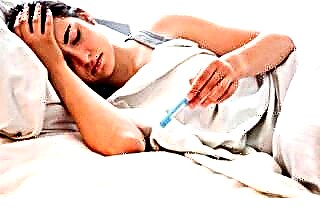How to treat tonsils?
 The tonsils become inflamed as a result of the colonization of the nasopharynx and the folds of the glands with pathogenic microflora. Bacteria, fungi, numerous viruses, bacilli, spirochetes can act as pathogens. The complex of symptoms and therapeutic measures depends on the type of pathogen.
The tonsils become inflamed as a result of the colonization of the nasopharynx and the folds of the glands with pathogenic microflora. Bacteria, fungi, numerous viruses, bacilli, spirochetes can act as pathogens. The complex of symptoms and therapeutic measures depends on the type of pathogen.
Risk factors activate the destructive activity of microbes. Such factors include prolonged exposure to fresh air in frosty, windy, rainy weather, the influence of allergens, contact with an infected person, vitamin deficiency, poor living conditions, smoking, throat injury.
A prerequisite for the occurrence of angina is a weakened human immunity. Any chronic diseases that reduce immunity can be a risk factor.
A distinctive feature of acute tonsillitis from other inflammatory processes in the pharynx is severe pain in the tonsils, their swelling, enlargement, redness, plaque, purulent plugs. All this greatly complicates the patient's breathing and swallowing.
Traditional treatments
Traditional therapy includes a set of measures: diet, antibiotic treatment, local effects on the tonsils, physiotherapy procedures. Only the use of complex measures will give a high therapeutic effect.
The main method for diagnosing tonsillitis is a visual examination and a throat swab. In the smear, the type of pathogen is isolated, the sensitivity of the sick person's body to antibiotic groups is determined. Depending on the type of pathogen, antibacterial treatment of angina is prescribed.
For many decades in a row, the best treatment for sore throat was considered tonsillectomy - the removal of tonsils surgically. Today, the tonsils are trying to keep in any condition. For this, they use both folk remedies and traditional medicine.
Antibacterial therapy
The goal of antibiotic therapy is to eliminate the symptoms of tonsillitis and prevent the development of early and late complications.
With bacterial angina, broad-spectrum antibiotics are prescribed. Antibiotic therapy is selected in such a way that the medicine acts on a specific type of bacteria. The main bacterial pathogen is group A hemolytic streptococcus.That is why it is so important to come for a consultation with a specialist and take a smear. Only the attending physician will be able to correctly select the drug. If the treatment is carried out on its own or the antibiotic is selected incorrectly, then there will be no positive result from such therapy.
With streptococcal sore throat, in most cases, drugs of the penicillin series are prescribed, less often - cephalosporins. If the patient has allergic reactions to these groups of antibiotics, then macrolides or lincosamides are used. The dosage of the drug and the time of its administration are calculated individually for each patient. Antibiotic therapy is carried out for 10 days. Repeated antibiotic treatment is performed only with recurrent acute tonsillitis.
Timely use of antibacterial drugs significantly shortens the duration of the illness and reduces the severity of symptoms
Drugs are prescribed to relieve symptoms:
- pain relievers: analgin, ibuprofen, nimesulide, diclofenac;
- medicines for high fever: paracetamol, acetylsalicylic acid, analgin;
- decongestants: cetrin, diazolin, suprastin, diphenhydramine, pipolfen;
- cough tablets: mucaltin, bromhexine, pertusin, libexin.
- vasoconstrictor drops from the common cold;
- vitamin complexes that strengthen the immune system.
Bed and dietary rest
- Bed rest is prescribed in the acute phase of the disease. The patient must be in bed in order to save the strength of the body to fight the infection. The fact that many patients with angina continue to lead an active lifestyle is very wrong. First, there is a high risk of developing formidable complications. Secondly, infected people risk not only their own health, but also the health of those around them. Angina is a very contagious disease and 100% of people become infected by contact with a sick person. Those who have weakened immunity get sick. People with strong immune systems are carriers of the infection.
- During the development of the disease, it is necessary to adhere to a diet. It is necessary to exclude from the diet meat, fatty, canned, spicy, sour
 food, spices, all foods that irritate the mucous membrane of the throat. Food should be soft and warm. Basically, these are pureed semi-liquid cereals, mashed potatoes, cutlets, meatballs, fish cooked in the oven or steamed, milk porridges and soups, weak broths, dried bread. You can not drink juices in their pure form, they must be diluted with water.
food, spices, all foods that irritate the mucous membrane of the throat. Food should be soft and warm. Basically, these are pureed semi-liquid cereals, mashed potatoes, cutlets, meatballs, fish cooked in the oven or steamed, milk porridges and soups, weak broths, dried bread. You can not drink juices in their pure form, they must be diluted with water. - For a speedy recovery in the patient's room, it is necessary to maintain a certain microclimate. It is necessary to regularly ventilate the room, carry out wet cleaning, humidify the air with special devices or a container with water supplied to the heating radiator. Bacteria and viruses multiply very quickly in dry, hot environments. The optimum air humidity is up to 70%, the optimum temperature is up to 20 degrees.
Local therapy
1. Irrigation of the pharynx with sprays with antibacterial and anti-inflammatory effect.
2. Inhalation can be carried out over a container with steam, add a few drops of essential oils, soda, salt to the water. It is more convenient to carry out inhalation using a nebulizer. The great advantage of this device is that the procedure can be carried out in a supine position.
3. Gargling with saline, furacillin, miramistin. The procedure is carried out at least 5 times a day until complete recovery. 200 ml of solution is enough for one rinse. Rinsing removes plaque on the tonsils, flushes out microbes, relieves inflammation and swelling.
You cannot clean the tonsils yourself or remove the plugs - this can lead to bleeding from the tonsils or the development of an abscess
4. Lubrication of the tonsils with Lugol's oil solution allows you to moisturize the mucous membrane, reduce swelling and inflammation, and numb the throat. After several procedures, it becomes much easier for the patient to swallow.
5. Mustard plasters are placed on the chest and throat. They are dipped in warm water, applied to the desired area, and wrapped on top with a warm cloth. The procedure takes 7-10 minutes. If there is a strong burning sensation, discomfort, flushing of the skin, then mustard plasters do not need to be used. All warming procedures are performed after the body temperature has returned to normal.
6. In the recovery phase, hardware physiotherapeutic procedures are effective: irradiation of the glands with UV rays, CMB on the neck in the area of the projection of the tonsils, phototherapy, laser therapy. Exposure to dry heat helps to destroy microbes, relieve swelling and inflammation. Exposure to electricity (electrophoresis) is not prescribed for pregnant women in the third trimester and for patients undergoing chemotherapy.
Unconventional treatments
Treatment of angina with folk remedies has always yielded good results.
- mustard or ginger hot baths are made for the feet. In a period of elevated temperatures, you can pour ginger or mustard powder into socks overnight. This folk means improves the general condition of the patient;
- steam inhalations with essential oils of eucalyptus, lemon, orange, fir oil make breathing easier;
- Gargling is the main treatment for sore glands, along with antibiotic therapy. For these purposes, you can use not only pharmacy, but also folk remedies: lemon juice, diluted with water, beet juice, saline solution with soda and iodine, water with honey and lemon, propolis tincture, diluted water. The main thing is to rinse as often as possible. The procedure helps to remove microbes from the mucous membrane, remove plaque from the tonsils, reduce inflammation, edema, hyperemia, pain syndrome;
- decoctions of herbs well relieve inflammation: chamomile, sage, juniper, rose hips, raspberry and cherry branches, St. John's wort, elderberry. Standard recipe: a tablespoon of collection in a glass of boiling water, leave for 20 minutes, drink like tea. You can add lemon and honey;
- effective potato inhalations. Boil potatoes in their skins, sit over an open pan with hot potatoes, cover your head with a blanket. Breathe potato steam for 7-15 minutes.
You need to contact a specialist at the very beginning of the disease in order to start treatment on time. Otherwise, such complications are possible: sepsis, tonsil abscess, brain inflammation, laryngeal edema, rheumatism, inflammatory processes in the heart and joints, the transition of angina to a chronic form. In order not to put yourself at risk of getting sick, you need to strengthen your immunity all year round, visit the sun and fresh air more often, get vitamins from food, take vitamin complexes, get rid of bad habits, and at the peak of the disease try not to contact infected people.

 food, spices, all foods that irritate the mucous membrane of the throat. Food should be soft and warm. Basically, these are pureed semi-liquid cereals, mashed potatoes, cutlets, meatballs, fish cooked in the oven or steamed, milk porridges and soups, weak broths, dried bread. You can not drink juices in their pure form, they must be diluted with water.
food, spices, all foods that irritate the mucous membrane of the throat. Food should be soft and warm. Basically, these are pureed semi-liquid cereals, mashed potatoes, cutlets, meatballs, fish cooked in the oven or steamed, milk porridges and soups, weak broths, dried bread. You can not drink juices in their pure form, they must be diluted with water.

